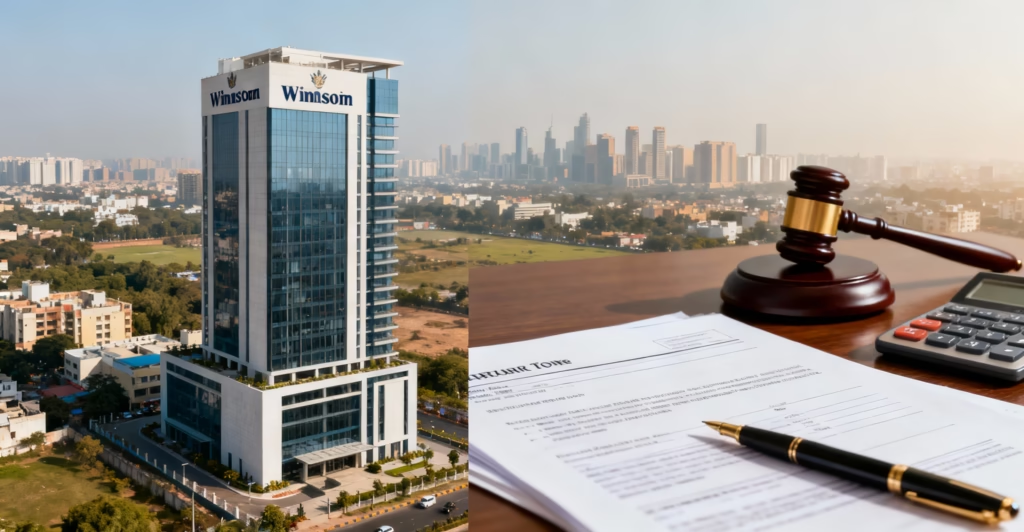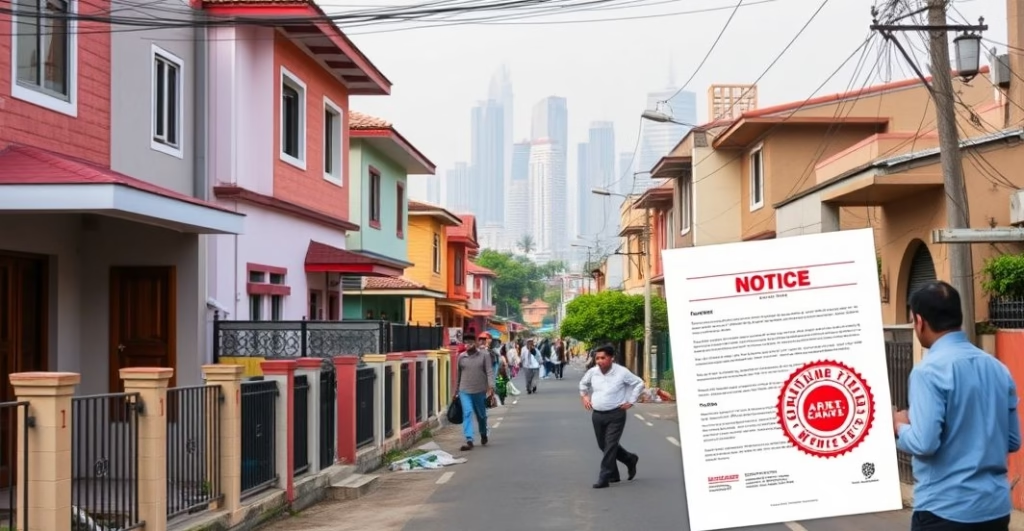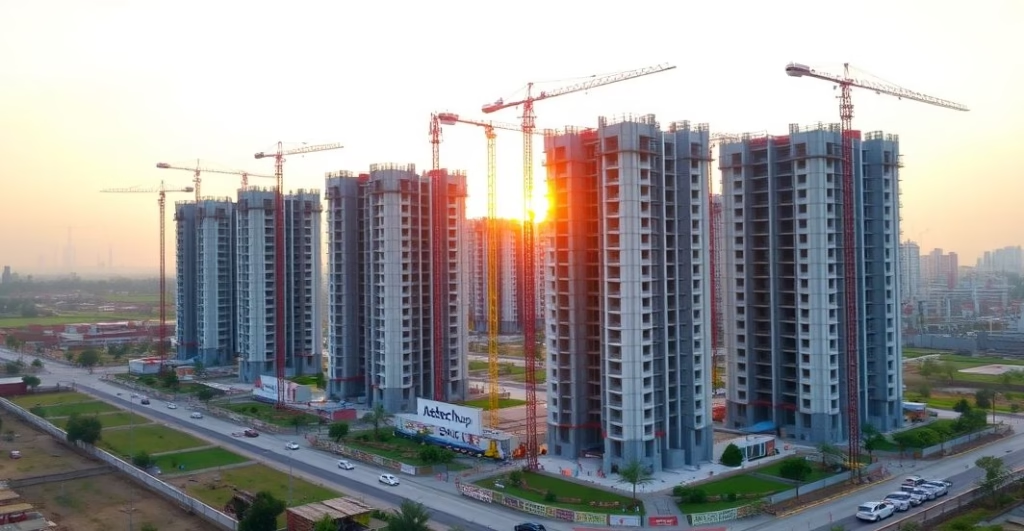Auto-published by Growwh – a smarter way to scale content and marketing. Want to know more? Chat with us.
TL;DR: Allahabad HC set aside Noida Authority’s nearly Rs 12 crore extension charge against Windsor Corporate Tower and ordered recalculation based on the original lease premium. Affected parties should seek recalculation, refunds with interest, and perform careful legal due diligence before transactions.
Key verdict: Extension charges must use original lease premium
The Allahabad High Court has quashed a demand of nearly Rs 12 crore raised by the Noida Authority against Windsor Corporate Tower, ruling that extension charges must be computed on the original lease premium and not on current allotment rates or location charges. The court directed the Authority to recalculate the charges strictly as per the lease deed and refund any excess with statutory interest.
What the court decided
Delivering the judgment, the court set aside three orders issued by the Noida Authority and the state government and held that the Authority cannot change the basis of computation for extension charges. Clause 8(c) of the lease deed allowed an extension on payment equating to 4% of the original lease premium per year; the High Court ruled this basis must remain intact despite later claims by the Authority that current allotment rates should apply.
Timeline and the dispute
The underlying dispute concerns an institutional plot in Sector 16A, first allotted in November 2008 and subject to a lease deed executed in December 2009. The original allottee sought and obtained an extension until December 2017 after paying Rs 2.39 crore. The plot was later transferred to Windsor Corporate Tower in late 2015, with transfer charges paid by the transferee.
When Windsor sought further extensions, the Noida Authority recalculated extension charges using the prevailing allotment rates plus location charges — a move the court found to be ultra vires the clear terms of the lease deed. The HC ordered recalculation for the period between December 21, 2017 and October 20, 2020 and allowed Covid-related relief for delays in completion.
Refund and interest
The court directed the Authority to refund any excess amount after recalculation within one month and to pay 6% annual interest if the refund is delayed. Windsor had already deposited a portion of the demanded sums during the litigation; the judgment clarifies that the Authority must work from the original lease premium and cannot recast dues on market-premium figures.
Lessons for developers, investors and buyers
This ruling underscores the importance of closely reviewing lease deeds and understanding the specific clauses that govern extensions, transfer charges and computation methodology. If you are evaluating a commercial or institutional plot, confirm whether extension charges are linked to the original lease premium or to variable allotment rates.
For overseas or domestic investors, this decision is also a reminder to carry out comprehensive legal checks before acquiring leasehold property. A thorough legal due diligence for property buyers in India will help identify clauses that could materially affect future liabilities such as extension charges or transfer fees.
How this affects the Noida real estate market
The judgment may influence how authorities and developers approach lease renegotiations and how transfer-related computations are administered in future. Buyers and tenants of commercial properties should watch for recalculated demands and possible refunds for projects that experienced extended timelines.
Investors interested in Noida’s evolving retail and office landscape can look at current offerings and planned developments to spot opportunities created by regulatory clarity. Projects such as Sikka Mall of Noida – retail, office & food court spaces on Noida Expressway and One FNG by Group 108 – premium office and retail spaces in Noida Sector 142 illustrate the type of commercial supply that investors might evaluate against regulatory developments.
Practical next steps for affected parties
- Request the Authority’s recalculation in writing and obtain an itemised statement showing computation based on the original premium.
- Retain legal counsel to verify that the recalculation follows lease deed terms and the court’s direction.
- Track refunds and interest payments; seek timely remedies if refunds are delayed beyond the court-ordered period.
- Before acquiring or transferring leasehold assets, perform detailed due diligence to confirm transfer charges, extension clauses and CEO/board amendment powers in the lease.
Why contract wording matters
The case highlights a frequent dispute driver: the scope of powers reserved to an authority’s officials (for example, a CEO or chairman) versus express, unambiguous contractual clauses. While authorities may claim discretion under internal policies or clauses like Clause 24(ii) in some deeds, courts will enforce a clear contractual limitation that confines changes to the rate — not the computation basis.
Final takeaways
The Allahabad High Court judgment restores predictability for leaseholders by reaffirming that extension charges must adhere to the original lease premium unless the lease deed specifically allows otherwise. Affected parties should pursue recalculation and refunds, and all prospective buyers should prioritise robust legal checks before investing in leasehold properties.
This article was auto-generated as part of a smart content campaign powered by Growwh.com. Curious how we do it? Chat with us to learn more about our content automation systems.


